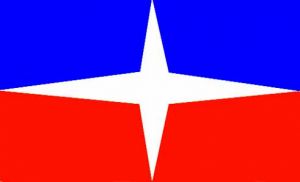Language/Interlingua-international-auxiliary-language-association/Vocabulary/Drinks
Hi Interlingua (International Auxiliary Language Association) learners! 😊
In this lesson, we will learn the vocabulary related to drinks in Interlingua (International Auxiliary Language Association) and some interesting facts and cultural information. We will also include a dialogue so you can see the words in context.
Don't forget to check out Find native speakers and ask them any questions you may have. Also, visit our Polyglot Club website to improve your vocabulary further. Finally, for more vocabulary, check out our Interlingua (International Auxiliary Language Association) Vocabulary section!
Vocabulary[edit | edit source]
Here is a list of the most common drinks and their translation and pronunciation in Interlingua (International Auxiliary Language Association):
| Interlingua (International Auxiliary Language Association) | Pronunciation | English |
|---|---|---|
| aqua | /ˈak.wa/ | water |
| cafe | /ˈka.fe/ | coffee |
| the | /tɛ/ | tea |
| leche | /ˈlɛ.kɛ/ | milk |
| succo | /ˈsuk.ko/ | juice |
| cola | /ˈko.la/ | cola |
| limonada | /li.mo.ˈna.da/ | lemonade |
| birra | /ˈbir.ra/ | beer |
| vino | /vi.no/ | wine |
| cocktail | /kok.ˈtejl/ | cocktail |
| whisky | /ˈwɪs.ki/ | whiskey |
Interesting Facts[edit | edit source]
- Coffee is a big part of the Italian culture, and the word "espresso" comes from the Italian language. The word itself means "pressed out" because the coffee is made by forcing boiling water through finely ground coffee beans. - The history of tea dates back to ancient China, and it is said that the emperor Shen Nung discovered tea accidentally over 5,000 years ago. Tea became popular in Europe in the 17th century, and the British have been having tea time ever since. - Milk is an essential ingredient in many traditional Italian recipes. Italians love their cappuccinos, caffe lattes, and other milk-based coffee drinks. - Wine is a big part of French culture, and France is one of the biggest producers of wine in the world. The French have been producing wine for over 2,000 years, and it is an essential part of their cuisine. - In the United States, cola is very popular, and over 1.9 billion servings of Coca-Cola are consumed every day. Coca-Cola was invented in 1886 by John Pemberton, and it was originally marketed as a medicine.
Dialogue[edit | edit source]
To see the words in context, here is a dialogue between two people:
- Person 1: Voulez-vous du café ou du thé? (/vu.ˈle vu dy kɑ.fe u dy te/ - Would you like some coffee or tea?)
- Person 2: Je voudrais du café, s'il vous plait. (/ʒə vu.drɛ dy kɑ.fe si vu plɛ/ - I would like some coffee, please.)
- Person 1: Comment prenez-vous votre café? (/kɔ.mɑ̃ pre.ne vu vo.tʁ kɑ.fe/ - How do you take your coffee?)
- Person 2: Je prends mon café noir et sans sucre. (/ʒə prɑ̃ mɔ̃ kɑ.fe nwaʁ e sɑ̃ sy.gʁ/ - I take my coffee black and without sugar.)
Sources[edit | edit source]
➡ If you have any questions, please ask them in the comments section below.
➡ Feel free to edit this wiki page if you think it can be improved. 😎
Other Lessons[edit | edit source]
- Food
- Days of the Week
- Seasons
- Verbs in Interlingua
- Dinner Table
- Express Surprise
- Count to 10
- Health
- Camping
- Essencial Phrases in Interlingua
Template:Interlingua-international-auxiliary-language-association-Page-Bottom

